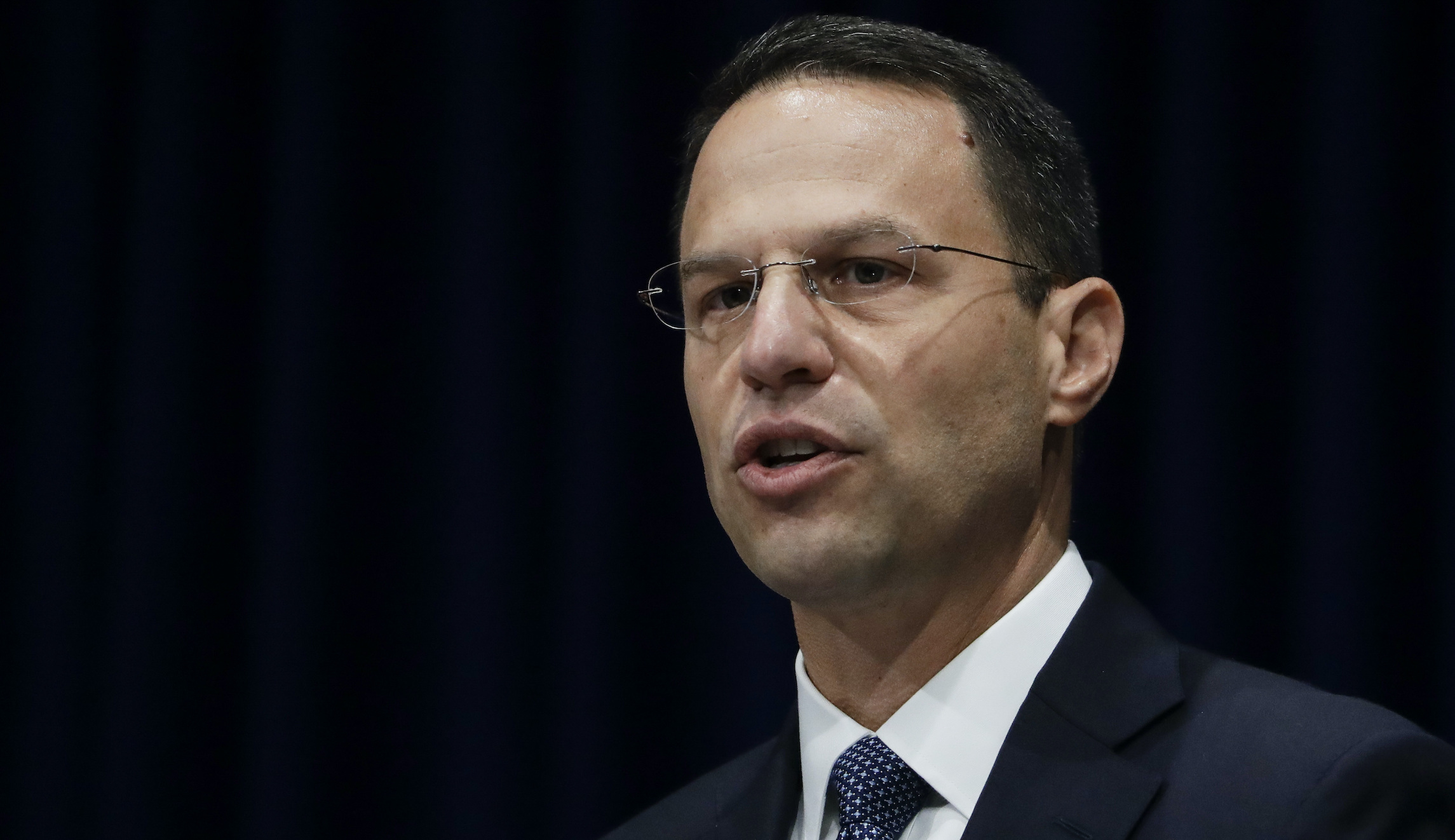
The quiet populism of Josh Shapiro
Salena Zito
This is the second in a four-part series looking at four candidates for governor; three Republicans and one Democrat who won their races handily, attracting broad coalitions with messages of governing over ideology that proved effective and serve as lessons to both parties.
HARRISBURG, Pennsylvania — Gov.-elect Josh Shapiro said that if he had to boil down the success of his campaign to a couple of things, it would be these two: showing up and listening.
“My view is that we needed to go everywhere, listen to people, show up in their communities,” he said. “It was not an accident that we launched our general election campaign in Johnstown, a forgotten community.”
But he also had to have a message, and one that connected, uplifted, and motivated people to vote for him. So, while many covering the election looked toward John Fetterman as the vessel for populism, or to Republican gubernatorial candidate Doug Mastriano to replicate former President Donald Trump’s populist fever, it was Shapiro who had the true populist message in last month’s election.
His populism didn’t show up in cargo shorts or hoodies. It didn’t promise marijuana for all, nor did it involve provocative statements that shattered norms. Rather, it was deliberate, direct, and without drama, and it worked.

Shapiro didn’t just personally show up in places like Cambria County; his message did as well, in the form of rural radio ads, something Democrats haven’t done in any serious amount since they won their congressional majority in 2006. His message was consistent and clear: “I’ve got your back. I will take on big corporations and big drug companies on your behalf, and I will not let any form of extremism deteriorate your trust in systems designed to protect you.”
It conveyed that Shapiro was that someone standing up for the little guy in the middle of a chaos campaign, and voters were drawn to it. They trusted it because, as attorney general, he has demonstrated he would do it. He took on powerful pharmaceutical companies that he blamed for manufacturing the opioid crisis. He pursued leaders in Pennsylvania’s Catholic dioceses for their irresponsibility in handling pedophile priests.
In short, Shapiro didn’t just win because he showed up. He didn’t just win because he ran against arguably the worst Republican candidate ever to run for governor. He also didn’t just win because he listened. His populist message also played a role, even if he was the least apparently populist candidate ever to run for office.
“I got elected with the most votes ever for a gubernatorial candidate in the history of Pennsylvania, and I got elected with this bipartisan mandate to do the things I talked about every day: invest in kids’ education, grow the economy, make sure our communities are safe,” Shapiro said in an interview with the Washington Examiner. “Now, the key is doing those things and not reinventing the wheel or working on initiatives that are not the kinds of things I ran on.”
When Shapiro is sworn in on Jan. 17 to succeed Democratic Gov. Tom Wolf, it will be the first time in over 126 years that the commonwealth will have three consecutive terms with a Democrat as governor.
The last time there were two Democratic governors in a row was in the late 1950s, when George Leader and David Lawrence were each limited by law to one four-year term.
Shapiro said that as he prepares for governing, he is working on building a team that will help him do what he promised to do. “I was really humbled to build this bipartisan coalition to win the election,” he said. “Now, the work we’re going to do every day is to keep that bipartisan coalition together to actually get things done and make people’s lives better.”
The former Montgomery County executive said that begins with a wide diversity of thought, experiences, race, sense of place, education, and point of view as part of his administration. That began with his choice of Austin Davis as his running mate. “The reason I chose Austin to be my running mate wasn’t just because of the color of his skin, but because of the fact that he lived a different life experience than me, and so, he would be able to sit around the table and force me to think about things differently, challenge me to look at a problem in a different light, and work to solve problems for communities that I might not have grown up with but he did.”
Shapiro said that for him, it is important he surround himself with people who will challenge him every day, “Some of the best people that I have found over time who challenge me are people who have different life experiences than I, regardless of what they look like,” he said.
Shapiro said what he won’t do is hire a bunch of yes men and women who tell him every idea he has is brilliant. “I joke all the time I’m still waiting for my staff to let me hire the one yes man — they have not yet let me get him,” he said, laughing.
He said he will begin Inauguration Day with an executive order that does away with the college requirement for thousands of the state government’s 82,000 jobs. “So, you want to talk about opening up the doors of opportunity to more people or having more people sitting around these different tables in government who didn’t go to the Ivy Leagues … the point is, this isn’t just talk. This isn’t just applicable to the governor’s executive team. I am going to make that attitude applicable all across state government,” he said.
As for his pledges as a candidate that won over independent and Republican voters, that includes his support for all of the energy resources that are found in this state — wind, nuclear, solar, coal, and natural gas. It also includes his support for school choice and his rejection of COVID mandates. He said that he is standing behind all of these promises.
“My view was the mandates about shutdowns, the mandates about vaccines, the mandates about masks, I kind of view them all in the same bucket, that mandate bucket. And I’m opposed to them,” he said.
“I’m about educating and empowering people and letting them make the best decisions for themselves. And by the way, whatever they choose, I’m going to protect that right, whether they choose to wear the mask or not wear the mask, or whether they choose to get vaccinated or not get vaccinated,” he said.
CLICK HERE TO READ MORE FROM THE WASHINGTON EXAMINER
“I would just add a fourth thing to that list: my desire to hire more police. That is critically important.”
